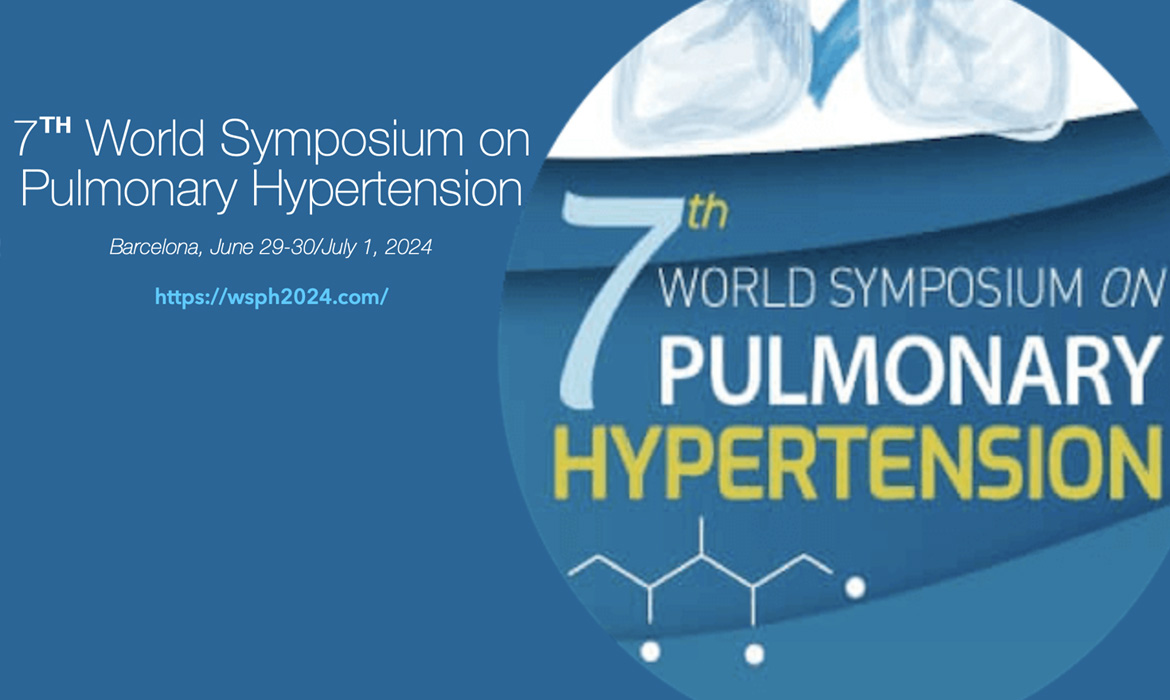Proceedings from the 7th World PH Symposium is Now Published

I am thrilled to share that the proceedings from Task Force 1 (Patient Perspective) at the 7th World Pulmonary Hypertension Symposium (WPHS) have been published in the European Respiratory Journal (ERJ). As a pulmonary hypertension (PH) patient and a member of Task Force 1, this accomplishment is deeply meaningful to me. Our team, led by Dr. Jimmy Ford and comprised of dedicated doctors, patients, and advocates, spent over a year working together to highlight the importance of the patient perspective in PH research and care.
A Brief History of the World Pulmonary Hypertension Symposium
The WPHS is a globally recognized event that brings together experts from various fields to address the complexities of pulmonary hypertension, a rare but severe condition affecting the blood vessels in the lungs and the heart. Since the first WHO meeting on PH in 1973, the symposium has played a pivotal role in advancing understanding, diagnosis, and treatment of PH through collaborative efforts among clinicians, researchers, and increasingly, patients.
Over the years, the symposium has evolved to include multiple task forces, each tasked with exploring different aspects of PH to drive forward standards of care and innovative research.
The 7th World Pulmonary Hypertension Symposium and Its Task Forces
The 7th WPHS continued this tradition, establishing 15 task forces that focused on various critical areas of PH. Notably, this symposium marked only the second time that patients were directly involved in task forces, underscoring the importance of including patient voices in shaping clinical guidelines and research priorities.
Here is a list of the 15 task forces from the 7th WPHS:
- Task Force 1: Patient Perspective – Focused on integrating the patient’s voice and experience into PH research and care guidelines.
- Task Force 2: Pathology and Pathobiology – Examined the underlying mechanisms of PH to better understand disease progression.
- Task Force 3: Genetic and Molecular Mechanisms – Investigated the genetic and molecular bases of PH, exploring how these factors contribute to disease development.
- Task Force 4: Imaging and Functional Evaluation – Studied advanced imaging techniques and functional assessments to improve PH diagnosis and monitoring.
- Task Force 5: Risk Assessment and Prognosis – Developed strategies for assessing patient risk and predicting disease outcomes.
- Task Force 6: Pharmacological Treatment – Reviewed current and emerging pharmacological therapies for PH.
- Task Force 7: Interventional and Surgical Treatment – Explored interventional and surgical options, including lung transplantation and pulmonary endarterectomy.
- Task Force 8: Pediatric PH – Addressed the unique challenges of diagnosing and treating PH in children.
- Task Force 9: Exercise and Rehabilitation – Focused on the role of exercise and rehabilitation in managing PH.
- Task Force 10: PH Associated with Left Heart Disease – Investigated PH when associated with left heart disease.
- Task Force 11: PH Associated with Lung Diseases – Examined the links between PH and various lung diseases, including COPD and interstitial lung disease.
- Task Force 12: PH Associated with Chronic Thromboembolic Pulmonary Hypertension (CTEPH) – Studied PH in the context of CTEPH and other thromboembolic conditions.
- Task Force 13: Biomarkers and Clinical Trials – Analyzed biomarkers for PH and discussed the design and conduct of clinical trials.
- Task Force 14: Epidemiology and Registries – Explored the epidemiology of PH and the role of patient registries in understanding the disease.
- Task Force 15: Future Directions and Innovations – Focused on emerging technologies and innovative approaches in PH care.
The Impact of Task Force 1: Amplifying the Patient Voice
Task Force 1, led by Dr. Jimmy Ford, was uniquely positioned as the first among the 15 task forces, underscoring the importance of the patient perspective. Our group included four doctors—Dr. Simon Gibbs, Dr. Adam Torbicki, Dr. Victor Moles, and Dr. Ford himself— alongside two PH patients: myself, Hall Skaara, and Colleen Brunetti. We were also joined by Pisana Ferrari, a former PH patient who has undergone a double lung transplant, and Gergely Meszaros, a dedicated patient advocate.
Our task force focused on exploring the global challenges that PH patients face in accessing care, as well as the critical need for multidimensional patient support and advocacy. We highlighted the role of patient associations in providing support and improving patient outcomes and emphasized the potential of patient-reported outcome measures (PROMs) in enhancing diagnosis and treatment plans. The inclusion of the patient perspective in our discussions and recommendations aims to ensure that the evolving needs and experiences of patients are at the heart of PH research and clinical practice.
The proceedings of Task Force 1 not only discuss the state of PH care globally but also offer insights into the potential impacts of current global threats, such as pandemics, climate change, and armed conflict, on PH patients. Our report includes a summary of global surveys capturing patient and provider experiences and challenges regarding care access, alongside potential solutions for improving these outcomes worldwide.
The publication of these proceedings in the European Respiratory Journal is a testament to the hard work and dedication of everyone involved. I encourage you to explore the full findings and see how the patient perspective is helping to shape the future of pulmonary hypertension care.
For more details, you can read the full proceedings in the European Respiratory Journal here. The Task Force 1 proceedings can be found here.
Hall Skaara
Project Manager
Friday August 30th, 2024


